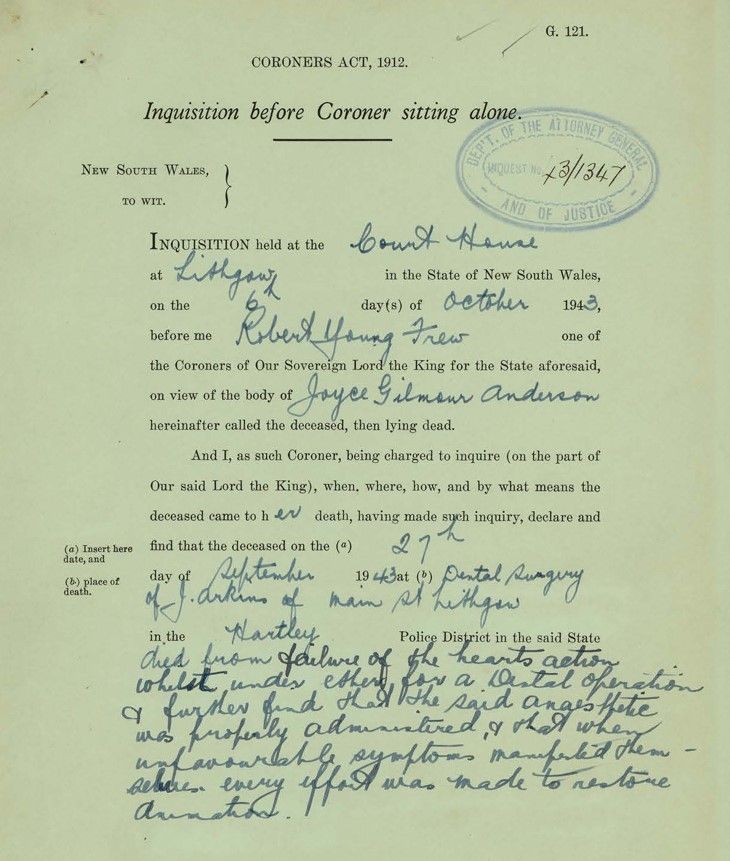COPY Inquests & coronial records guide
Inquests are conducted by coroners and are held to investigate the manner and cause of a death or a fire.
Major sources for inquest records
Before 1825
- NRS-5607 Judge Advocate: Reports of inquests, 1796-Apr 1824, Jun 1828 *ARK
This series is indexed by the Coroners inquest index, 1796-1824. It is also available for searching on the Ancestry website in the database New South Wales, Australia, Registers of Coroners' Inquests, 1821-1937.
View and download the digitised records
- NRS-1024 Colonial Secretary: Proceedings of coroner's inquests, 1809-1822
Note: The proceedings of inquests which returned a finding of murder by a named person are not listed here.

Coroners' inquests index 1796-1824
The index records: inquest number, name, date, location and remarks note whether the person identified in the index is the deceased or is appearing as a witness in the inquest for 1796-1824 only
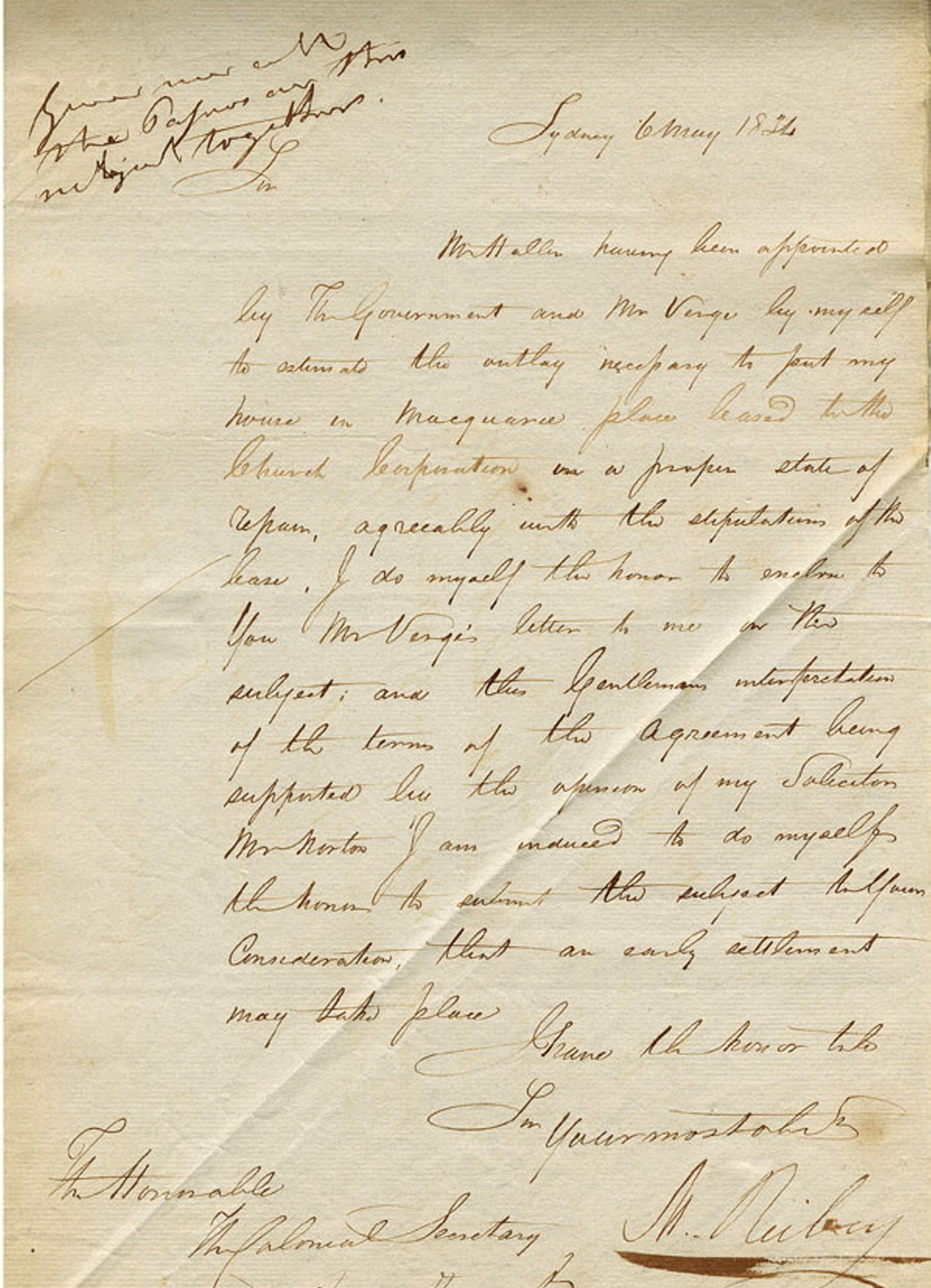
Colonial Secretary's Papers 1788-1825
Arranged by name and subject this is the most comprehensive index of early NSW settlement
After 1825
- Card index to inquests, 1834-1836, 1839-1844, 1852-1858, 1867-1868, 1870-1875
Compiled by staff and accessible in the Reading Room. It complements the following series NRS-344 below. Note that 1839-44 lists surnames A-G only.
These indexes and registers cover inquests heard around NSW, including Sydney.
- NRS-344 Indexes to registers of coroners inquests *ARK
This series is incomplete - the registers are only partially indexed. Prior to 1899, indexes are located in the front of 4/6611.2 (H-Z only) and 4/6612 only; the remaining available indexes for this period, which are separate volumes, are to be found on the following reels.
This series is complemented by the card index to inquests, listed above.
- NRS-343 Register of Coroners inquests and magisterial inquiries, 1834-1942 *ARK
Between 1899 and 1942 an index is included in the front of each register. Registers have not survived for the period May 1859-Mar 1864 (although index entries may be found).
This series is available for searching on the Ancestry website in the database New South Wales, Australia, Registers of Coroners' Inquests, 1821-1937.
The three series below are all listed in the online index
- NRS-346 Card register to inquests, Jul 1942-Mar 1963
The cards are arranged alphabetically for each six-month period.
- NRS-345 Coroners' inquest papers (files concerning inquests, magisterial inquiries and inquests dispensed with), 1851-1963
We hold a small sample of files from 1851, 1916, 1918-1920, 1921-1939. The bulk of the papers from 1940-Dec 1963 have survived.
- NRS 313 Letters received, 1918-1920
A number of files relating to inquests are included with the correspondence. These inquests were passed on to the Attorney General because the Coroner had brought down an open verdict or a reward was offered to bring forward more information.
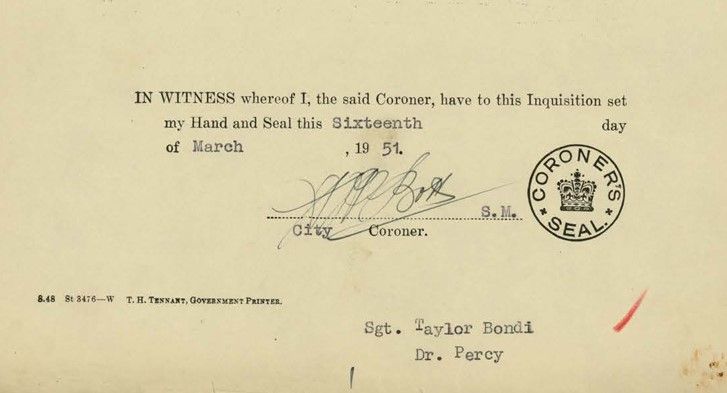
Inquest index 1851, 1916-1963
Search 55,000+ entries. This index records: inquest number, name or particulars of fire, date, location, coroner and remarks for the period 1851, 1916-1963
Inquests for specific localities
Occasionally there are records for specific localities. Where these survive, they are listed in the catalogue. Examples are:
Sydney City Coroner
- NRS-1783 Registers of inquests and inquiries, 1862-1926
This series is available for searching on the Ancestry website in the database New South Wales, Australia, Registers of Coroners' Inquests, 1821-1937.
- NRS-1784 Index to registers of inquests and inquiries, 1883-1938
The years 1883-1911 are copied on Reel 1390
- NRS-1785 Registers of inquests dispensed with, 1882-89
Record name of deceased, date and number of inquest dispensed with.
More Sydney Coroner records
Registers of bodies received
The registers show the number of the body and date received, name, sex, age, birthplace, occupation, where and when found, remarks, description and a statement of wounds or injuries.
Post mortem registers
Post mortem registers list the date of death, date of autopsy, doctor and medical attendant, name of deceased, birthplace, age, occupation, previous history and habits of the deceased, circumstances surrounding the death, remarks, external description, result of post mortem, cause of death, doctor's signature and date.
Internal examination registers
These record the name of the deceased, date of autopsy, cause of death, age, occupation, birthplace, date of death, by whom identified, circumstances relating to the death, and details of medical examination.
External examination registers
These may provide the name, age and birthplace of the deceased, occupation, date and results of examination, remarks and signature of the pathologist.
See the catalogue for a list of records from Sydney Coroner.
- NRS-1796 North Sydney: Registers of bodies received, 1881-1908
This series is available for searching on the Ancestry website in the database Sydney, Australia, Morgue Registers of Bodies, 1881-1908.
- NRS-1799 South Sydney: Register of bodies received, 2 Oct 1881-23 Aug 1892
This series is available for searching on the Ancestry website in the database Sydney, Australia, Morgue Registers of Bodies, 1881-1908.
- NRS-1800 South Sydney: Post mortem registers, 10 Oct 1881- 8 Jul 1889
This series is available for searching on the Ancestry website in the database Sydney, Australia, Morgue Registers of Bodies, 1881-1908.
- NRS-1788 Sydney: Registers of bodies received, 1908-1965
See the item list for NRS-1788 here.
Other localities
- NRS-1757 Coroners and Morgue: Verdicts in inquests - County of Buckinghamshire, Van Diemen's Land, May 1815-Sep 1819; County of Cumberland (NSW), Jun 1828
Verdicts in inquests, recording dates of death and of inquisition, name of deceased, circumstances and cause of death. Each verdict is signed by the coroner and members of the jury. In some cases for Buckinghamshire and in all cases for Windsor depositions are also included.
- NRS-1780 Port Macquarie: Register of inquests and magisterial inquiries, Jan 1839-Sep 1855
- NRS-1764 Dubbo: Register of inquests and magisterial inquiries, 1904-1917
- NRS-1769 Lower Hawkesbury: Verdicts in inquests, 1888-1913
- NRS-1772 O'Connell Plains: Coroner's notebook, 27 Oct 1883-21 Nov 1889
- NRS-1775 Parramatta, Silverton and Singleton: Register of inquests and inquiries held by R.H. Mathews, 26 Jul 1884-9 Oct 1894
- NRS-1778 Penrith: Register of inquests and magisterial inquiries, 10 Jun 1914-8 Oct 1928
Other records
Pharmacy Board
- NRS-10914 Register of deaths by poisoning, 1924-1939
Information provided may include the name of the deceased, date of death, place of death, poison, how poison was administered and remarks.
Responsibility of the Coroner
For information about the current coronial system in New South Wales, check the NSW Coroners Court website.
The most important function of a Coroner was to inquire into unnatural or sudden deaths, and Coroners were authorised to hold inquests in all cases of death if the body should be lying within the Police district or districts in which his jurisdiction applied. In the more remote Police districts of the Colony where no Coroner was situated, magistrates could take depositions and inquire into the circumstances of death but, in such cases, a Justice of the Peace had no authority to empanel a Jury, as had a Coroner.
In addition to this function, Coroners had a common law right to preserve general order, were authorised to hold inquests on bodies of all persons who died in prison and could also hold inquests respecting deaths taking place in asylums, hospitals or public institutions. In the event of the destruction of any property, real or personal, by fire the Coroner had jurisdiction to inquire into the cause and origin of such fire.
Under the Coroners Act, (No. 27, 1980) Coroners must hold an inquest when the deceased person is not identified, when the cause of death is not determined, when the person died as a result of a homicide, or if the person died in or attempting to escape from police custody. A coroner may also be directed to hold an inquest by the Attorney General or the State Coroner.
Reports of death
Deaths in certain circumstances must be reported to the Coroner. These circumstances include: sudden or unnatural deaths - occurring as a result of an accident, suicide or act of violence, deaths of persons in institutions or in police custody, and deaths within 24 hours of, or as a result of the administration of anaesthetic. These may or may not result in an inquest.
Missing persons
Missing persons must be declared dead by the Coroner. This must occur before the estate can be settled.
Inquests dispensed with
Not all reports of death result in an inquest. Under the current Act a coroner may dispense with an inquest if the circumstances around the death or fire are sufficiently disclosed to make a formal court hearing unnecessary.
Archives in brief
Sensitive material
Please note inquest files contain documents and photographic evidence of cases that were heard by the Coroner's Court and the contents in some files may be distressing.
How to search for NSW inquests
1851, 1916–1963
The Index to inquests 1851, 1916-1963 contains 55,000+ entries. More than 450 entries have been digtised through our digitisation on-demand copy service and can be viewed and downloaded straight from the catalogue.
1794–1825
The index to coroners Inquests, 1796-1824 lists over 800 entries
1788-1825
Search the Colonial Secretary's Papers and view/download the digitised records
In person
Original, uncopied records can be accessed in the State Archives Reading Room for free.
Copy service
Order copies of inquest files straight from the catalogue or through our Copy service.
Webinar
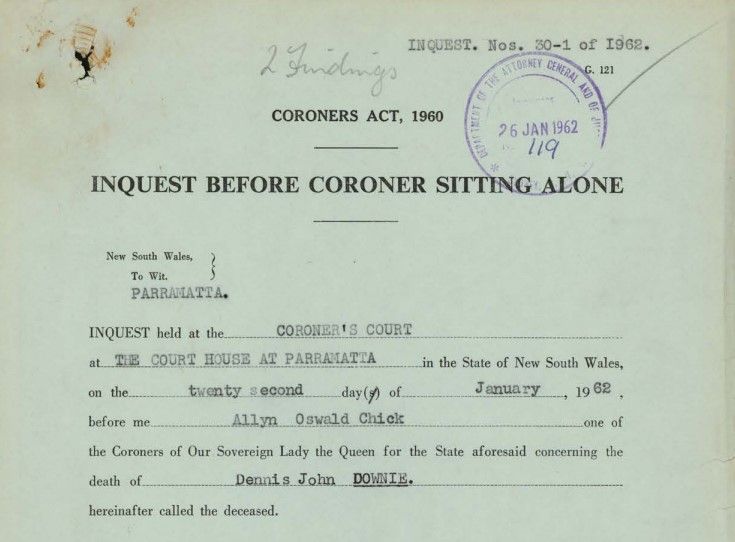
Using the inquest index
Now with surviving inquest papers from 1916-1939 and April–December 1963 (Glebe Coroners Court), this webinar shows you how to use the inquest index and explore the new additions
Family history guides
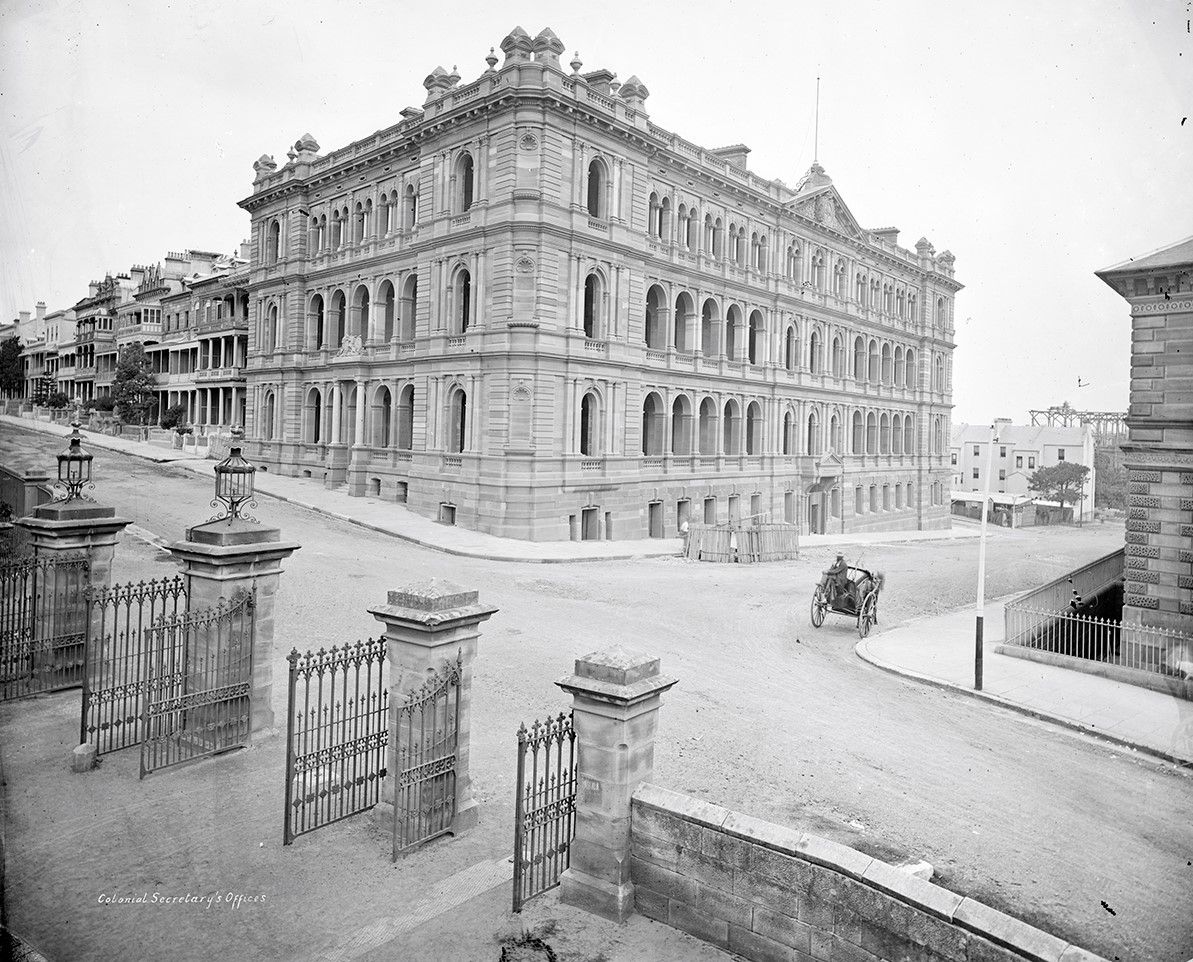
Accessing Colonial Secretary's records online
A guide to assist users browsing NSW Colonial Secretary’s papers 1826-1900 at Ancestry.com or FamilySearch.org
Aboriginal resources: an overview of records
A brief overview of the State archives that document the NSW government's interaction with Aboriginal people from 1788 until today
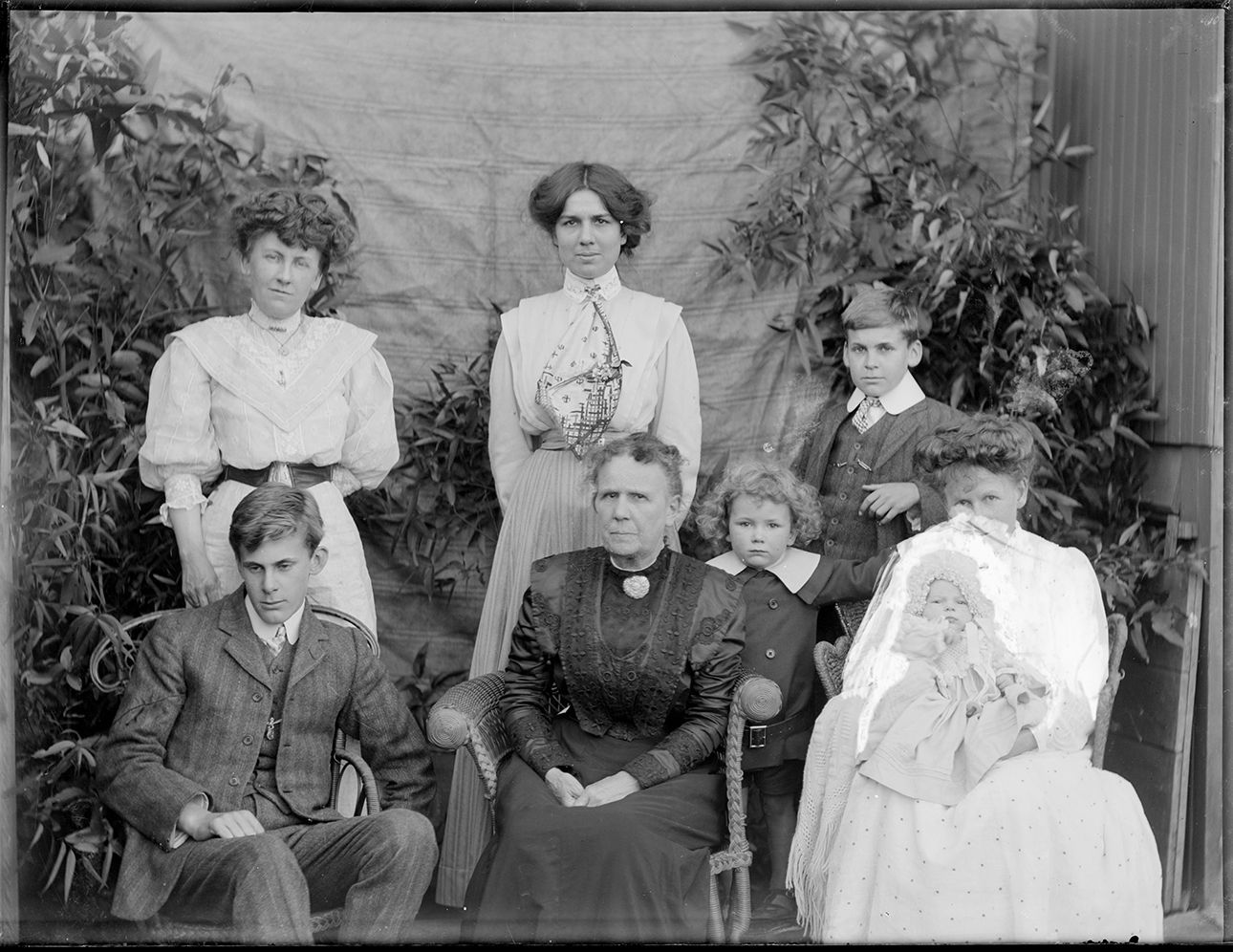
Family history guide
Tracing your family history is always easier working from the present to the past
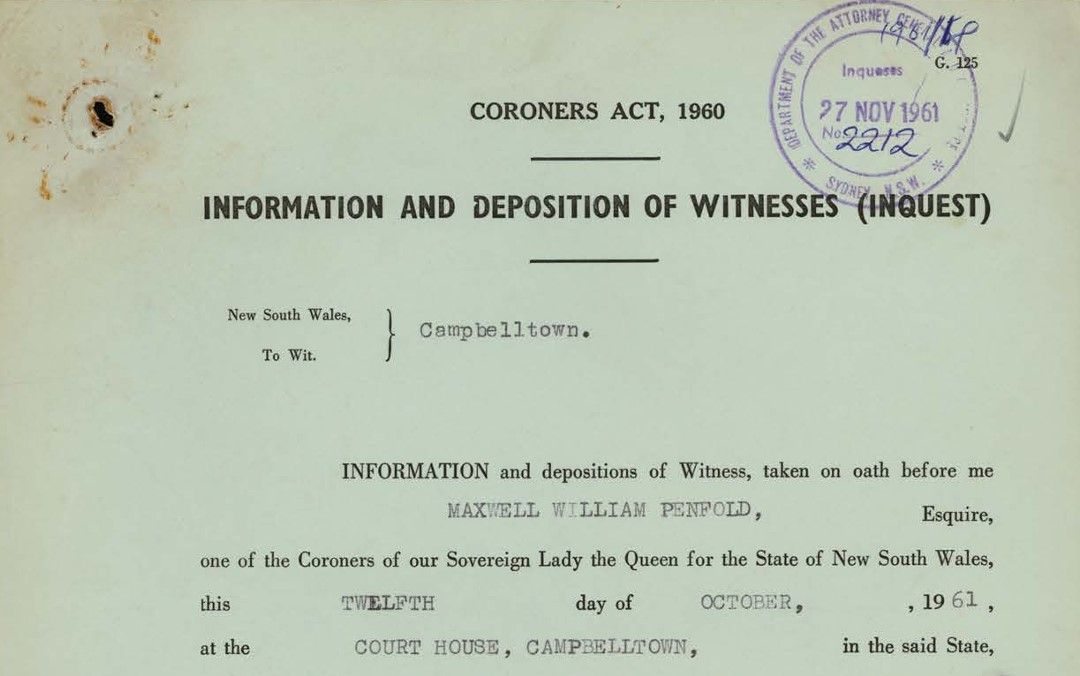
Inquests & coronial records guide
Inquests are conducted by coroners and are held to investigate the manner and cause of a death or a fire. Not all deaths resulted in an inquest
